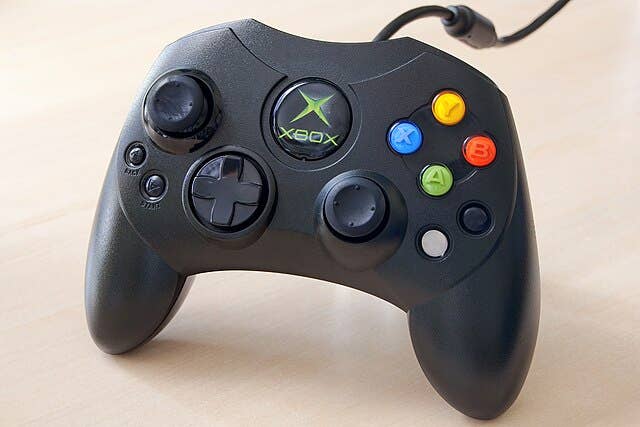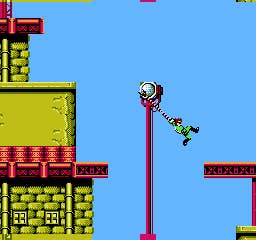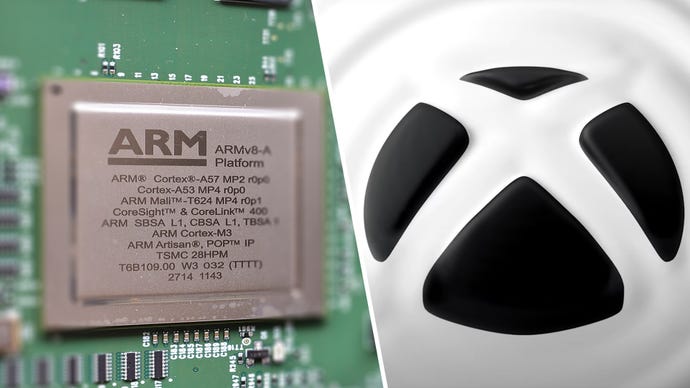Xbox leaks: what do they mean for you? Our five biggest takeaways
It’s unfortunate for Microsoft that the documents were made public, but there’s a lot to be excited about
Yesterday was not a great day for Microsoft’s Xbox division. Due to some goof up by entities unknown, documents submitted for the purposes of discovery in the Federal Trade Commission's case against Microsoft purchasing Activision Blizzard (a case they actually dropped earlier this year) ended up splashed all over the internet, as reported by many gaming focused Twitter accounts and media outlets (including ourselves, naturally).
The cat is most assuredly out of the bag. Phil Spencer has since reacted publicly to the leaks, insisting that much has changed since these documents were drafted (some of them are at least three years out of date), and that the real, current plans will be shared when they are ready.
There are some revelations in the material, though, that we feel Xbox owners should feel positive about. Check out our deep-dive discussion below, and read on for a summary.
Microsoft is more discerning about acquisitions than people give them credit for
A leaked email from Phil Spencer to his top team reveals that Microsoft were as of 2020 still very interested in acquiring Nintendo, and this was the tidbit that launched 1000 sensational headlines. But every big entertainment company probably wants to buy Nintendo: they’re the most desirable IP factory outside of Disney. Realistically, buying Nintendo isn’t an easy thing to do as Spencer notes in the email: they have a lot of cash. Like, a lot. And infamously, no debt. Nintendo are probably the most solvent company on the planet, unlike most big corporations which tend to be houses of cards made out of creative accounting, managed debt, and prayers.

But what’s more interesting (and less sexy) than Phil’s desire to buy Nintendo is his sober take on the possibility of acquiring Warner Interactive: a deal which would have netted a bunch of studios but little in the way of IP. Far from being a ravenous monster intent on owning every company on the planet, it seems that the Xbox division is concerned first and foremost with adding value to their business.
Of course, it’s generally a Bad Thing for all of us that every entertainment company in the world is on course to end up in one of a handful of homogenised megacorps, but there is a glimmer of light here in the fact that Xbox patently won’t just gobble up any firm it can afford for the sake of it, and also as we’ve seen with Bethesda and Obsidian, when they do acquire a studio these days they make a lot of effort to preserve that studio’s culture. Phil, for all his faults, knows what he’s buying and why.
You may now shout at me in the comments for being a huge mark.
Xbox is finally going to start leveraging those IPs it’s hoarding
The rumoured Oblivion remaster is, with the release of these documents, all but confirmed: of course, it’s possible that it’s been cancelled in the meantime, so it’s not nailed-on yet, but we reckon the probability of it happening is in the high 90s. This makes perfect sense: The Elder Scrolls 6 is still many years away whichever report you believe, and so refreshing the series by giving possibly its most beloved entry a brand new lick of Current Gen paint seems like a no-brainer. And if the recent Anniversary Edition of Skyrim is anything to go by, there even exists the (admittedly slim) possibility of extra content. Imagine that! More Oblivion! Fallout 3 is also slated for a refresh which, alongside the ever-delayed Series X/S version of Fallout 4, will happily keep Bethesda’s other Big IP ticking over too.

What’s also interesting is the mention of a Dishonored 3, and a sequel to Ghostwire Tokyo. Now, the Dishonored series has an enthusiastic cult following, but Arkane games have never quite gone as stratospheric as they deserve to, so it’s welcome news that the series is slated to continue. Likewise, Ghostwire Tokyo didn’t exactly set the world on fire at release (although it appears to have become something of a Game Pass sleeper hit following its second launch on Xbox). Perhaps we can’t read too much into this, but it’s tempting to think that these are encouraging signs that niche studios like Arkane and Tango Gameworks are able to flourish with the backing of a megacorp, without being forced to pivot to making stuff that sucks (see BioWare, Lionhead).
A new Xbox controller promises to level the playing field
Aside from arguments over who has the best exclusives (Nintendo) or who has the most powerful hardware (PCs), the biggest differentiator between Xbox Series and PS5 is the controller. The standard Series controller is a workhorse: a reliable beast that iterates on the basic design of the Original Xbox Controller S that has carried through the 360 and Xbox One era to now. It’s solid and dependable to the point where you could probably hammer a nail in with one and still do a few laps in Forza, and its battery life is second to none. That reliability comes at a cost, though: it’s pretty light on features. Rechargeable batteries don’t even come as standard, the haptic feedback is pretty basic (impulse triggers and handle vibration), and there’s no internal speaker.

But a new Xbox controller is in the works, codenamed Sebile, that promises to match Sony’s Dualsense feature set with sophisticated haptics that also function as internal speakers, gyro controls (an Xbox first), and a rechargeable battery as standard. It aims to go further than merely matching the PS5 controller, though: the battery is replaceable, it has lift-to-wake functionality for convenience, and it’s designed to be paired to multiple devices at once via the standard Xbox protocol, Bluetooth, and curiously, directly to the cloud over (presumably) wifi: a feature lifted directly from the ill-fated Stadia controller, which aimed to improve latency by connecting the pad directly to the game server rather than via your TV or streaming device. For cloud-streamed games, every millisecond counts.
A lot of people will argue that those features are not worth losing battery life over. Indeed, the Dualsense sputters and dies after a pitifully short time on a full charge, and many players have taken to turning off the haptics and adaptive triggers in order to save energy (and because some people find them annoying). And, as Alex argues in the video above, support for these features hasn’t exactly been plentiful on the PS5 to date, with free launch title Astro’s Playroom remaining the gold standard on that front even after three years.
So, this might not be for everyone. But, if it becomes the new standard Xbox controller, it’s possible that developers will place more emphasis on supporting haptic feedback etc, and everyone will benefit: PS5 and Switch users too.
No Xbox Pro: a sensible mid-gen refresh with a cost-saving emphasis
Ever since the start of this gen, a lot of people have assumed that Pro versions of the Gen 9 consoles are a given. On the basis that, uh, it happened last time. This has always been a dubious prospect, though: the PS4 Pro and Xbox One X came into being in the wake of mass-market uptake of 4K televisions, among other factors (the Xbox One being a hairdryer).
The market is totally different this time round, and the case for mid-gen Pro upgrades is even thinner now than it was 6/7 years ago. We’re still at the tail end of an unprecedentedly long cross-gen period, and due to rampant inflation and the global economy generally being in the toilet, people have less disposable cash now than they did in the mid-2010s. For a lot of the audience, the launch model Xboxes and PS5s are a scarcely justifiable upgrade from what they already have. The prospect of an even more expensive machine with marginally better visuals or framerates probably doesn’t excite that many people, frankly.

Though the PS5 Pro is, despite all this, supposedly in the works, it’s refreshing to see that Xbox is going the other way: a more traditional refresh with an emphasis on better power consumption and a slimmer form factor rather than increasing the teraflop count. The new Series X ditches the corners and the disc drive of the launch model, but is slated to keep the same price and double the storage, and we reckon it’ll probably come bundled with the new controller too. On the lower end of the market, updates to the Series S with higher storage capacity are on the way too.
This is a good thing for both early adopters and future owners: those of us with launch machines aren’t under any pressure to upgrade, and new consumers will have nicer machines with better controllers that are cheaper to run (which wasn’t much of a concern 7 years ago, but now very much is).
Those of you lamenting the demise of physical media are probably seething at the prospect of even more discless machines, the effective death of a pre-owned market for Xbox games, and the very real concerns this brings up for game preservation. But I live in a really small flat, so I’m not arsed.
Next gen starts in 2028, with Xbox Everywhere a key factor
Xbox is often accused of having no vision, but I think it’s fairly obvious where their direction of travel is intended to take them: the uncoupling of Xbox from a physical device. Your Xbox is your parents’ TV, your phone, your crappy old laptop, your Chromecast (or sanctioned equivalent), not just a big black box in your house. This of course has been the promise of cloud gaming going all the way back to the OnLive days, but with Xcloud being part of the mix of a more traditional console ecosystem, it looks as though Microsoft actually do have a chance of making it finally happen.

It’s early days, and the leaked documents only reveal that Microsoft are still unsure as to the type of silicon that will power the next Xbox, but it seems clear that while Next Gen won’t be ditching native hardware just yet, a potential move to ARM based processors may signal a convergence of scalable technologies that will allow “your” Xbox to exist on a range of devices with different power profiles. Leveraged by the cloud, but running on the same architecture that powers most smartphones, we could be heading for a situation where there is no effective separation, as there is now, between playing a game on Xcloud vs playing it on your Xbox vs playing it on your Windows PC.
All the exciting stuff that has failed to properly materialise from cloud gaming so far has a chance of actually coming to fruition, which is a tantalising prospect for many. Although, if you think a discless future is a disaster for consumer choice and game preservation, you’re probably apoplectic at the idea that the next Xbox will be a quasi phone hybrid where half the game runs on a server somewhere. As you should be. Christ, it sounds grim.
Still, The Elder Scrolls 6 on the toilet, eh?


